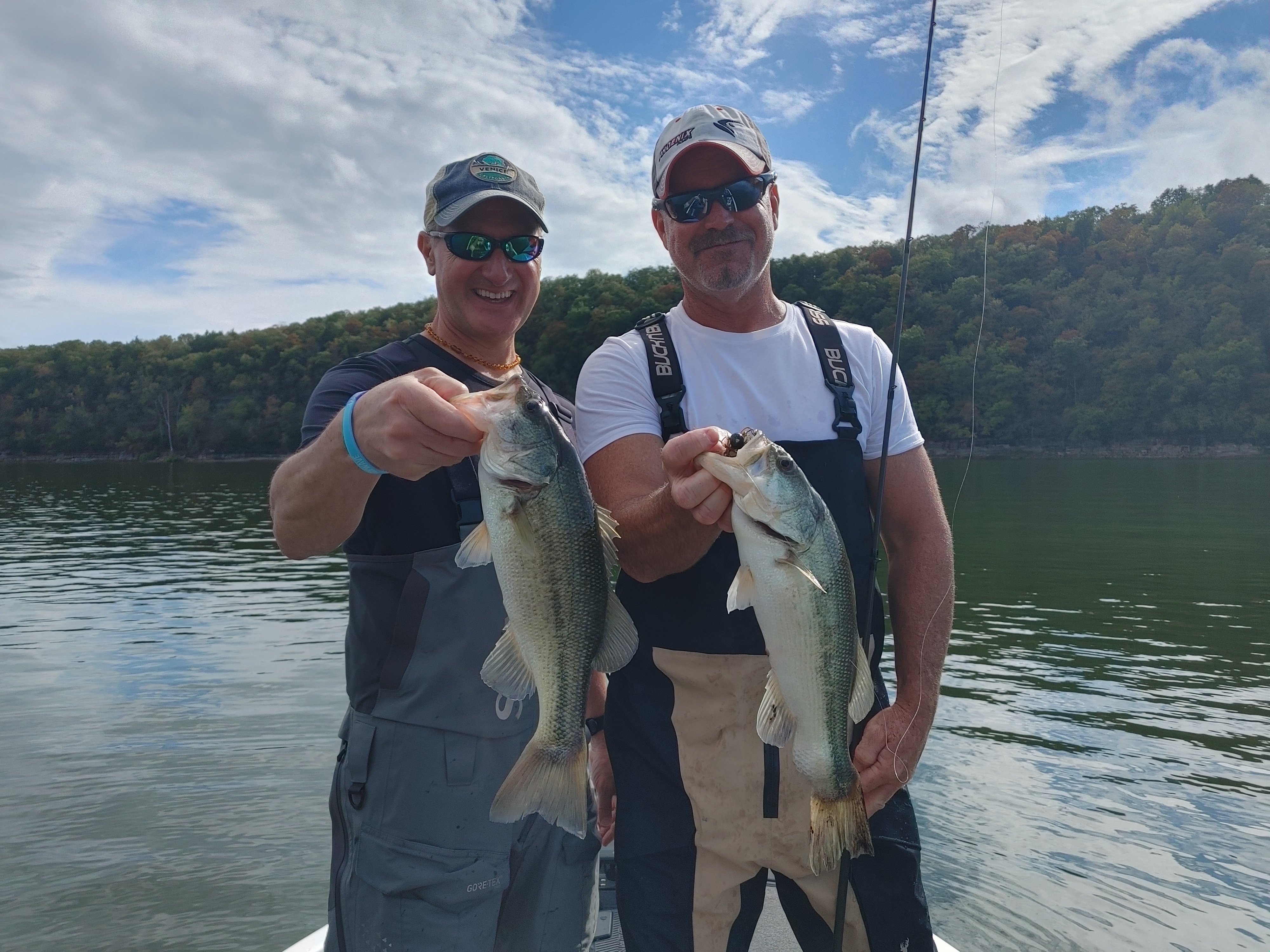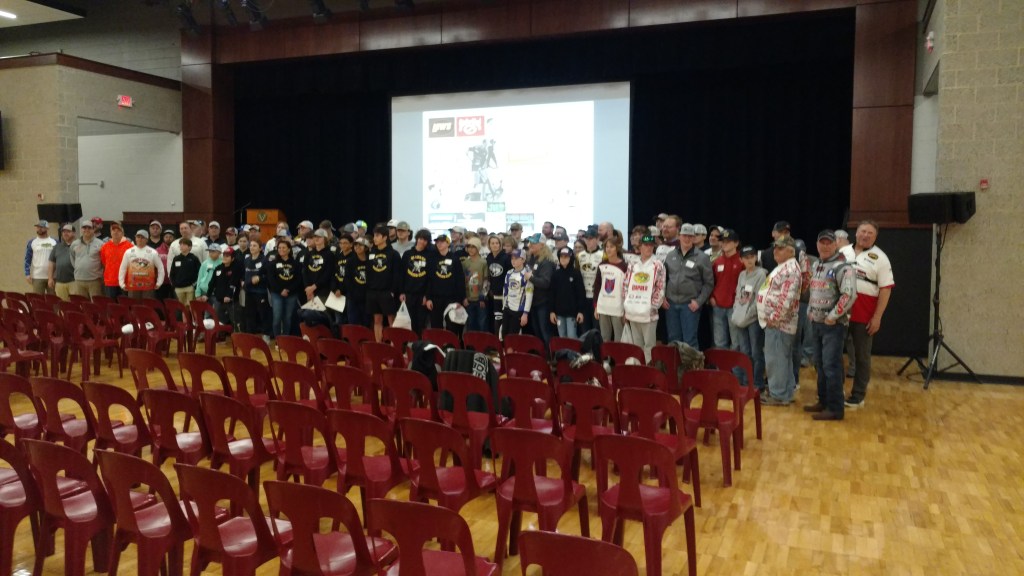
When some bass pros retire from Bassmaster Elite Series competition, they want to leave it all behind. Not Chad Morgenthaler and Brian Snowden – they’re still looking to pay it forward.
The two veteran Missouri anglers, who live in the same community near Table Rock Lake, not far from Branson and Springfield, Mo., are part of a team that started Future Cast Academy. The school is a way to keep the sport moving forward, ensuring young — and not-so-young — anglers have access to the latest information as well as an understanding of on-the-water ethics and responsibilities. The two other guides are veteran Ozarks angler Billy Elbert and former Bassmaster Open champion Dave Mansue.
“Every sport has a coach or an opportunity to improve your skill set except bass fishing,” Morgenthaler said. “Part of that is because everyone who is competing doesn’t want to give up the goods. Once I retired, I didn’t have to be as concerned about that.” He also doesn’t have to be quite as concerned about sponsorship, although he does maintain a healthy portfolio. Now he can work with multiple brands of equipment, whether in his own boat or in those of his clients, and he said it’s made him a better angler. “It caused me to look at everything from wiring to rigging to voltage, and I realized that certain tools have certain advantages.”
Their location in the Ozarks is ideal for teaching. Not only is it literally the center point of the country, making it geographically advantageous, but they also have all three major species of bass and numerous bodies of water within a short drive. If a developing angler wants experience in deep water or shallow water, dirty or clear, the conditions are nearby and readily available. It’s also a great area for nonfishing members of the family, with plenty of other activities at the ready.

Snowden, who was one of the earliest practitioners and advocates for forward-facing sonar, said that not surprisingly many requests come in for instruction in advanced electronics. He guided throughout his Elite Series career, mostly on “catching” trips, but now learning typically takes center stage.
“That’s what most clients want learn, any new technology,” he said. “I can help them get years of experience in just a few hours, everything from settings to how they position the boat. Most of them used to cast at a 45 degree angle or straight into the bank, but now one key is to always position the boat into the wind.”
Their efforts start by assessing each client’s or pair of clients’ skills and abilities. “They get vetted,” Morgenthaler said. “We try to put you in the position you need to be in, rather than teaching information that’s over your head. Sometimes it seems like anglers try to go to college before they go middle school. They immediately jump into the Opens, spending tons of time and thousands of dollars, with very limited opportunity to cash a check – and then afterward they don’t know any more than when they started.”
Their clientele consists of many parent/child combinations, usually where the child is fishing in high school or college and is passionate about the sport, but the parent needs help taking it to the next level. They also work with many sets of tournament partners who compete in local or regional events.
Their lesson plans – which sometimes start in a “classroom,” rather than on the water, in order to ensure total concentration – extend beyond just pure fishing techniques. For example, they’re willing and able to help with “Boat Captain” classes for adults who want to help youth, but aren’t sure where to start. They can also spread out the coaching over months and engage in “virtual coaching” over the telephone or, better yet, connective software like Zoom.
The instructors and their pupils have already seen the instructional efforts pay off.
“Two parents reached out to me as soon as I retired for instructional deals for their 15-year-old kids,” Morgenthaler said. “They were both on their way; they had the basics down. They were focused and driven and stood out. One finished fourth in a 500-boat tournament on Watts Bar due to the technology I had worked with him on four months before. He picked it up and ran with it. He’s now third in the points in Tennessee. The other was from Alabama, and he’s in the top 10 as well.”

While most clients “just want to learn,” Snowden said that there are more than a handful who want to learn about life on the road. Those stories, which he recounts fondly, also convey a message — that by taking a scientific and measured approach to the sport, it’s possible to hang around and succeed at the highest levels for a long time.
“Being able to survive the Elite Series as long as I did shows an ability to adapt,” said Snowden, who fished the Elites from their inception in 2006 through 2021, and competed in seven Bassmaster Classics along the way. “I kept logs every day, folders of notes. I kept track of what went wrong and what went right, and how to improve. Research is really important in this sport. It’s about what not to do as much as what to do.”
They’re hoping to cut down the learning curve for others, and to make it fun at the same time. Meanwhile, it’s also helped their own fishing. The learning never ends, whether you’re the student or the teacher.
“It brings me back to my roots,” Morgenthaler said. “But it also makes me look at stuff through an instructional lens. On the Elite side of things, success often means doing a few things very well, and then you lean on them heavily. Here, we have to be more versatile and open-minded.”
For more information, or to book a class, check out Future Cast Academy’s website.





